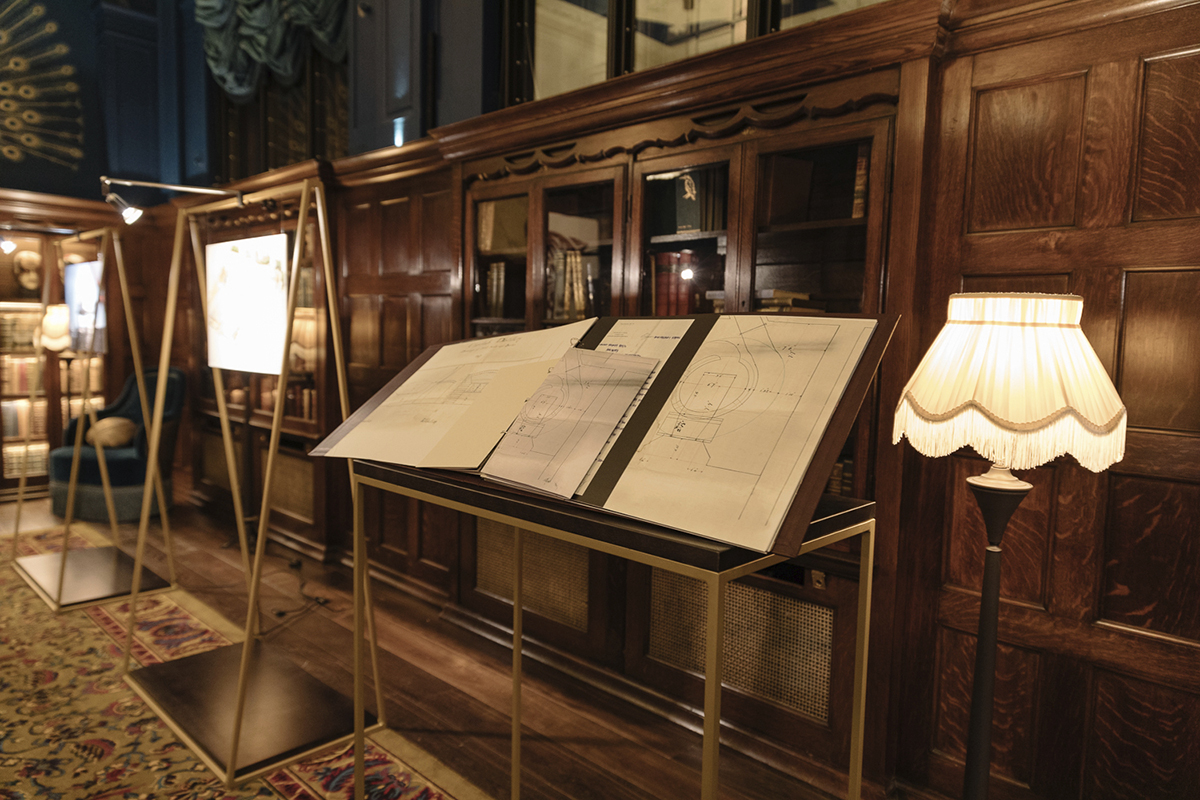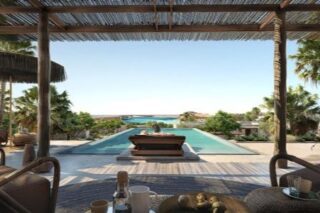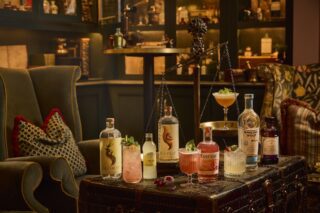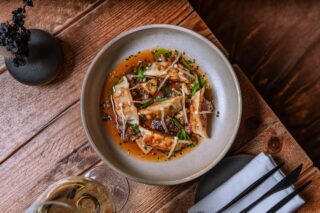This website uses cookies so that we can provide you with the best user experience possible. Cookie information is stored in your browser and performs functions such as recognising you when you return to our website and helping our team to understand which sections of the website you find most interesting and useful.
Brora whisky makes its triumphant return to the Highlands – and marks its rich history
By Damian Greenall | 9 December 2019 | Food & Drink
Tempus celebrates the 200th anniversary of the world’s most sought after Scotch whisky
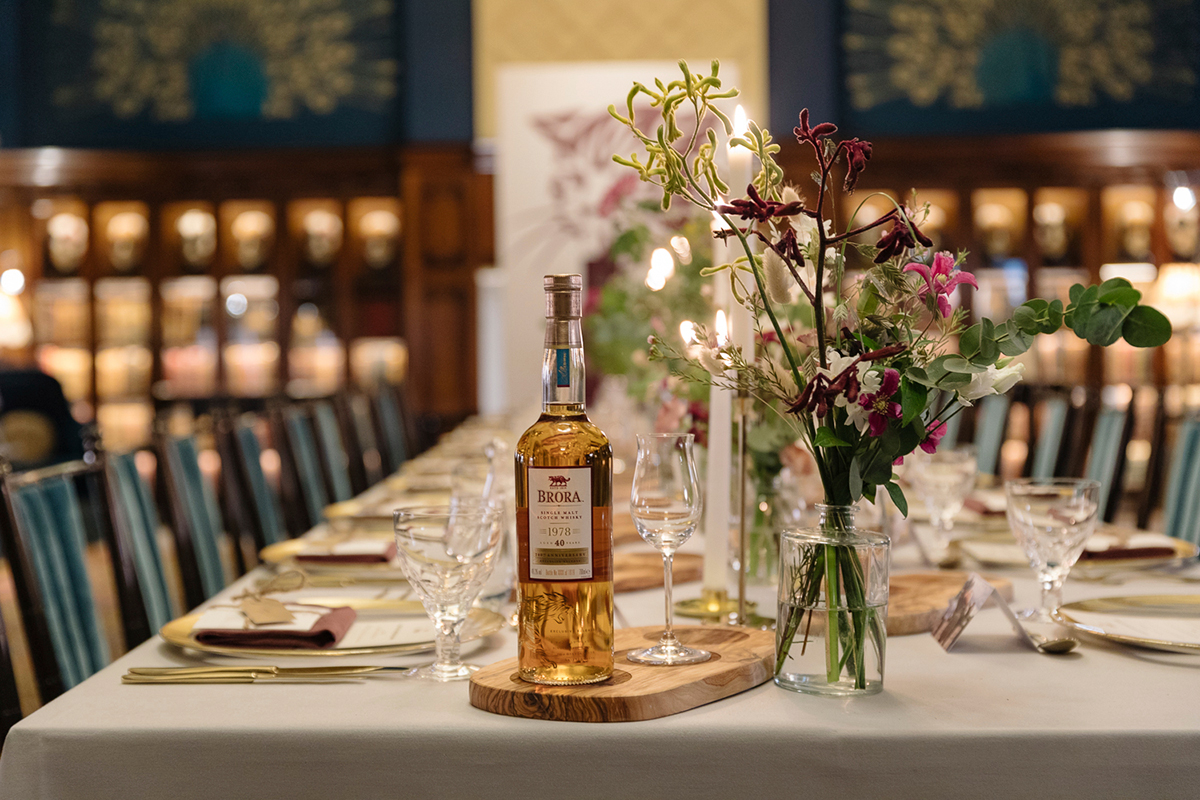
Brora whisky has a rather unusual history. Originally named Clynleish, the location was founded by the Marquess of Stafford in 1819 – not a popular individual in Scotland, the lord would become the Duke of Sutherland, who notoriously cleared 15,000 highland residents in the 18 and 19th centuries. Between 1846 and 1930, the distillery passed through several owners until The Distillers Company Limited and John Walker & Son took control. In 1968 Clynelish Distillery was opened, renamed to Brora in 1975.
Following so far or need a dram? Between 1969 and 1973 Brora produced a heavily peated whisky designed for blending, to make up for a shortage of Islay whisky in the region due to drought – unbelievable though that may sound to a west-coast Scotsman like myself. From 1973 to its closure in 1983, Brora produced a slightly peated style highland malt.
It is these single malt whiskies, available in small quantities, that make up the swansong of the Brora Distillery. Available through premium spirit brand Diageo's Special Release Collections and Casks of Distinction programme, Brora has developed a well-deserved cult following among connoisseurs.
On 2 December Diageo hosted a dinner celebration for the 200th anniversary of the opening of Brora – following the announcement of the firm's decision to reopen both Brora in 2020 and another ghost distillery, Port Ellen in 2021. Hosted at the beautifully baroque L'Oscar Hotel – a Grade II-listed former church in Holborn – we began the evening with an Old Fashioned that featured a 20-year-old Clynelish, bitters handmade by Diageo Global Whisky Master Ewan Gunn, and local honey.
In the bar, I spoke to Brora's new Master Distiller, Stewart Bowman. Though Bowman modestly suggests that this is a grand title for his role as distillery manager, the Brora-native in fact moved from his position at Clynelish to lead the £35million challenge of bringing Brora back to life. He will now run all parts of the distilling process in order to capture that unique quality that has made Brora such a phenomenal name in the world of Scotch whisky.
Dinner in the venue's Library followed, with guests moving to the second floor room decorated with exquisite oak panels, decorated ceiling and original fireplace. Surrounding the table were a selection of pictures from the past and present story of the Brora Distillery, showcasing the work that has gone into re-creating the site – including the renovation of the original stills. >>
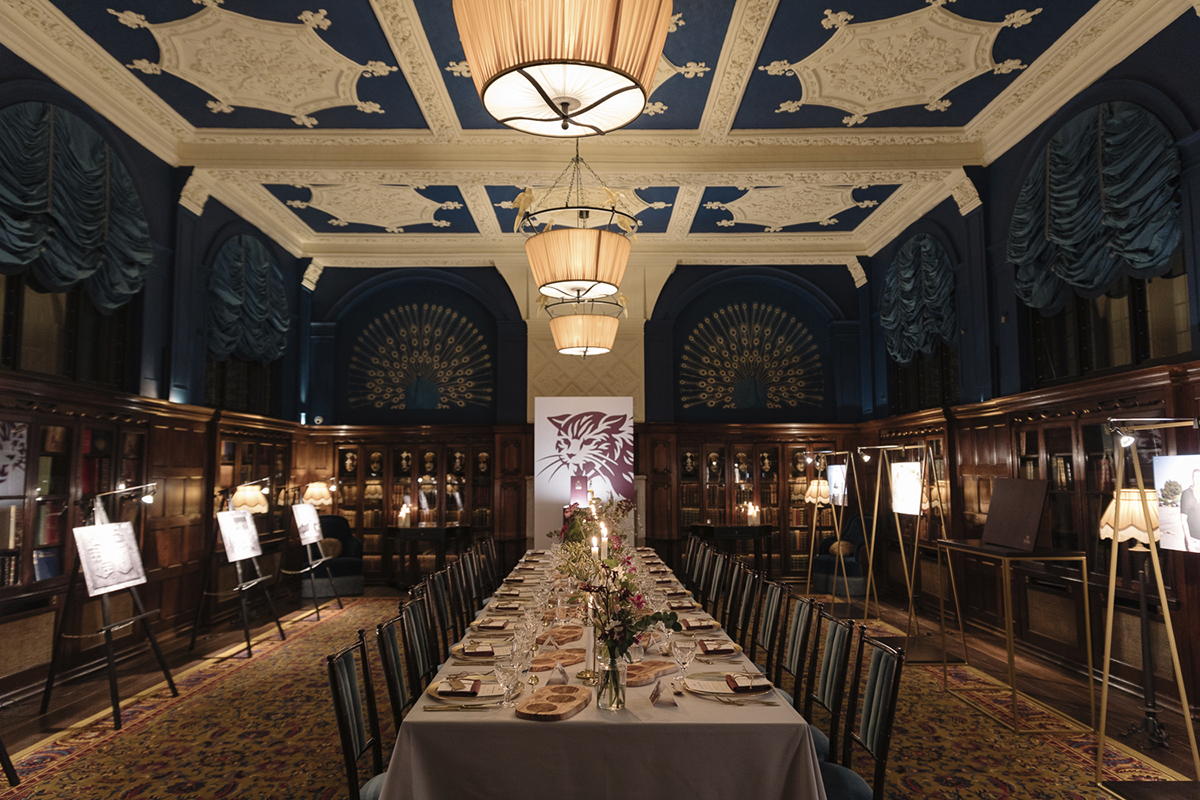
We were given a delightful introduction by both Bowman and Senior Archivist Jo McKerchar to the Brora ideal. What came through was the sense of family that abounds at the new Brora Distillery. In an area of the North East where there is little left in the way of industry, Diageo is investing a large amount of money to re-create what has become a very much cult whisky. The enthusiasm from Bowman was palpable, he is from the area and his family has been connected to the brewery for some time. There is a genuine sense of togetherness here and one thinks that that bodes very well for the future of Brora and, indeed, Port Ellen.
Of course, what would a Brora celebration be without the liquid itself? Our first course – seared Orkney scallops with heritage tomatoes – was served with the Clynleish 20-Year-Old 200th Anniversary. Hints of smoke, caramel and creamy honey made the whisky very smooth and highly drinkable. A little water was required to balance the 50% ABV, which was quite hot in the mouth, and open up the deeper flavours. According to Gunn, who introduced each of the whiskies tasted, 1819 bottles have been produced from six European oak sherry casks – though I believe these are sadly already sold out.
The main course was fillet of Cumbrian beef, short rib kromesky and truffle sauce, paired with the Brora 30-Year-Old 1st Edition Special Release 2002. 52.4% ABV. This whisky was truly exceptional: a little smoky, the relationship between Brora and Islay becomes very apparent. The smokiness dissipates after time to leave hints of honey and fruit. The initial overtones are burnt caramel, black pepper and a hint of blackberry.
To finish, a manjari Chocolate pot with cherry sorbet and almond biscotti was served with the showstopping Brora 40-Year-Old 200th Anniversary (49.2% ABV). To say that this was outstanding does not begin to do justice to this jewel of a whisky. If there is a better whisky out there, I haven't found it. This is a complex drink; mellow and smooth honey, waxy mouthfeel and intense flavours. Hints of pepper, caramel and, deep down, a sensational leather. The whisky was matured for 40 years in American oak hogsheads and it shows.
With such wonderful refreshment available from the historic casks, one can only wish Diageo in general, and Bowman in particular, the very best of luck and anticipation for Brora's second life: I was left in no doubt of its past and future success.
